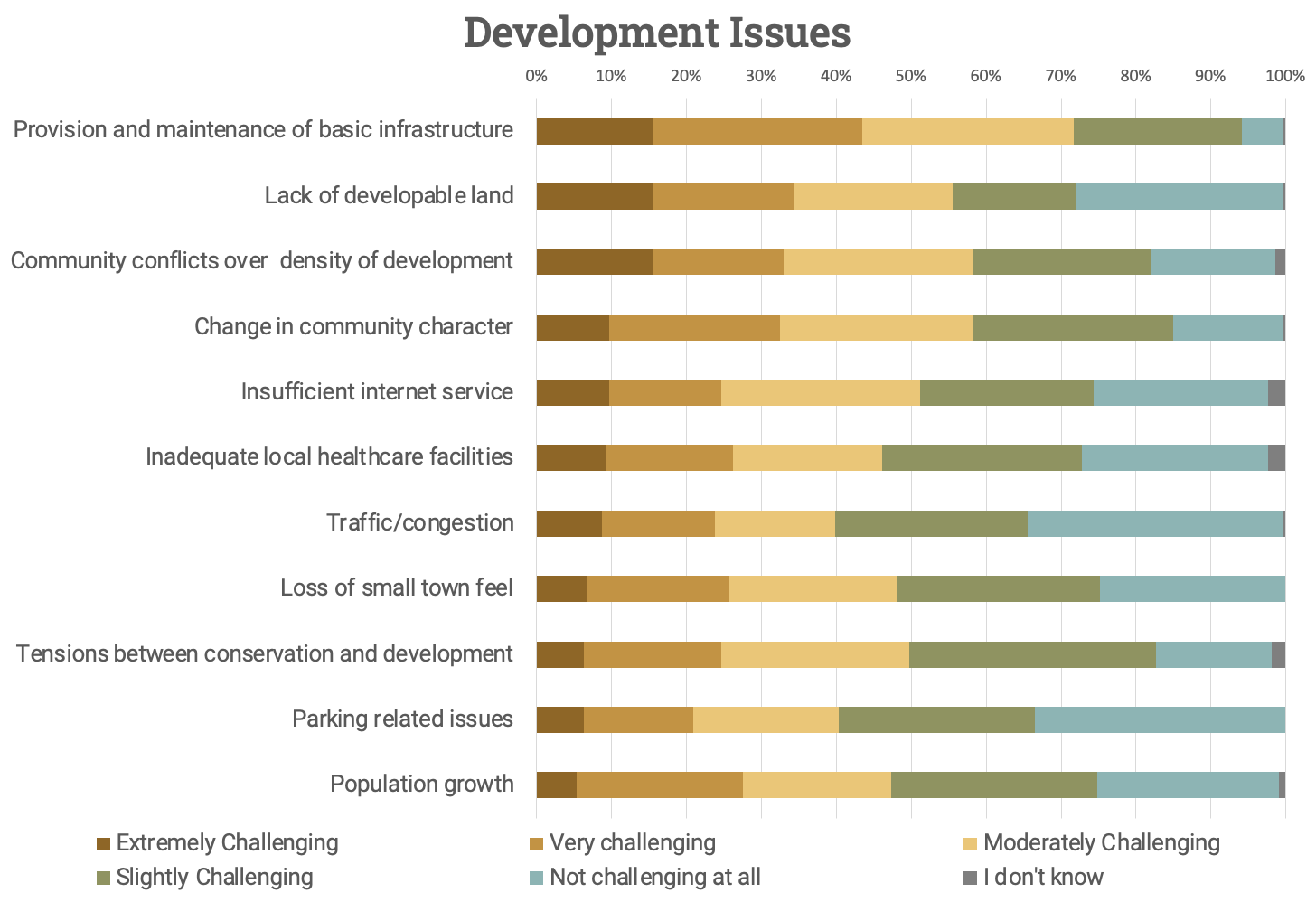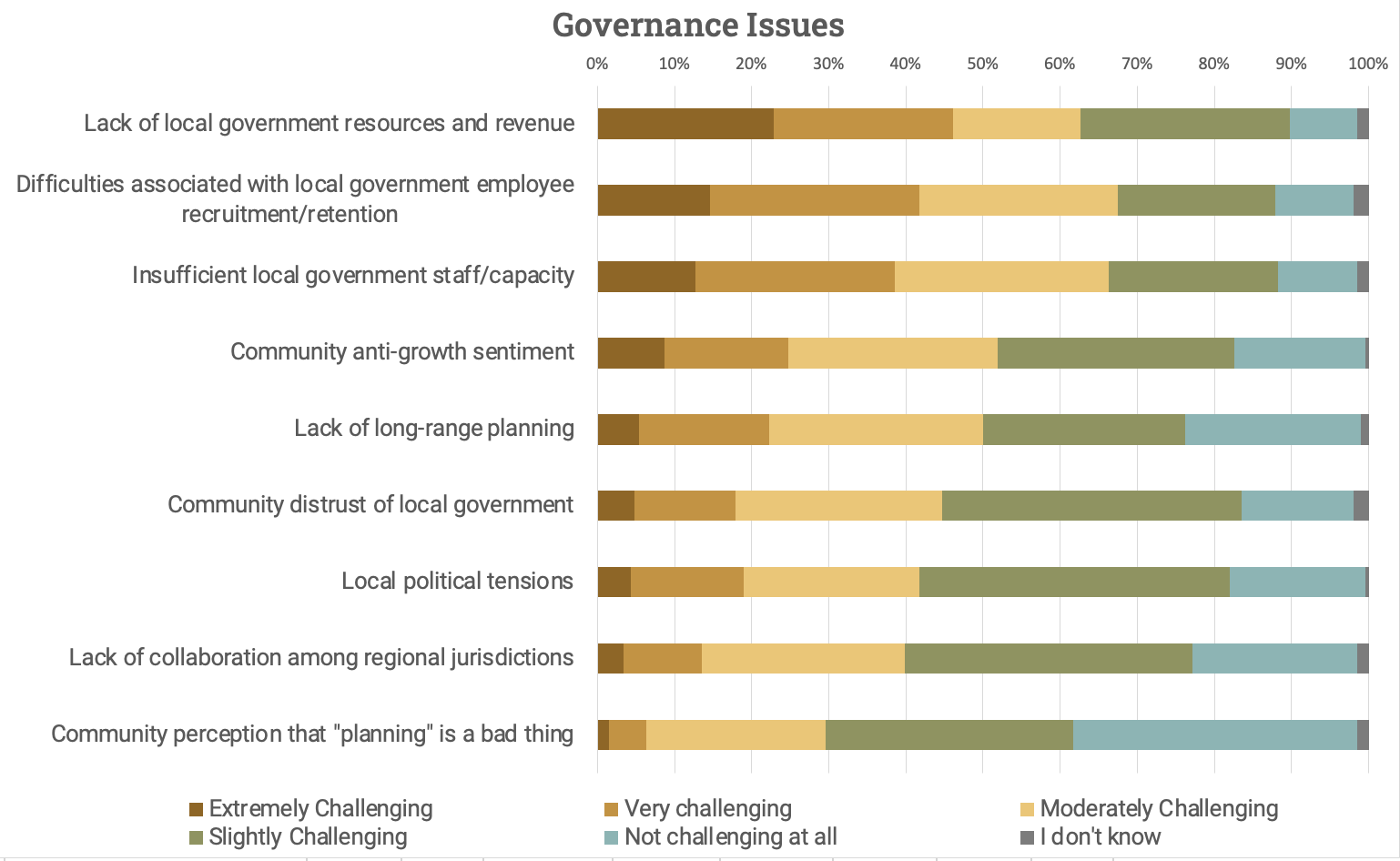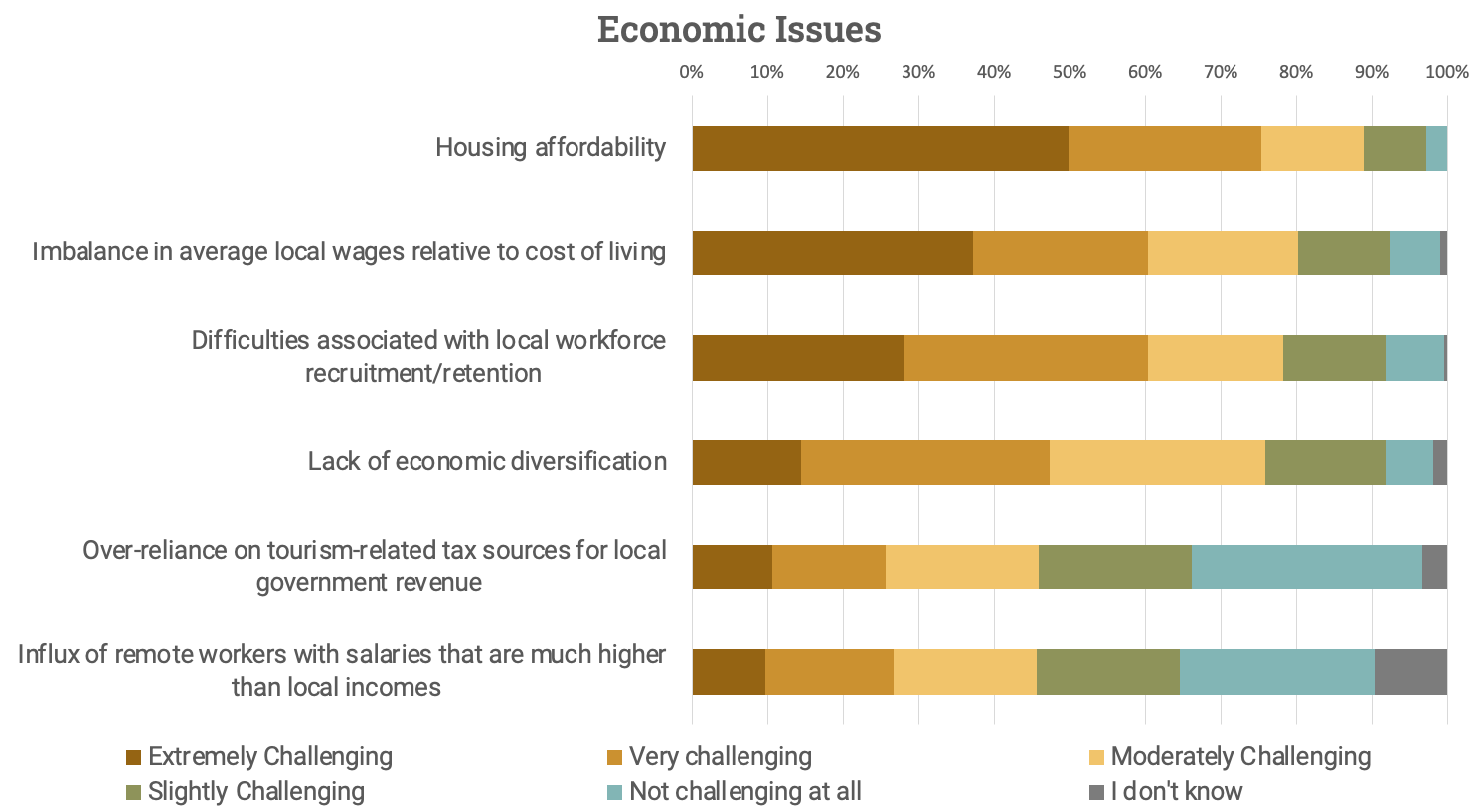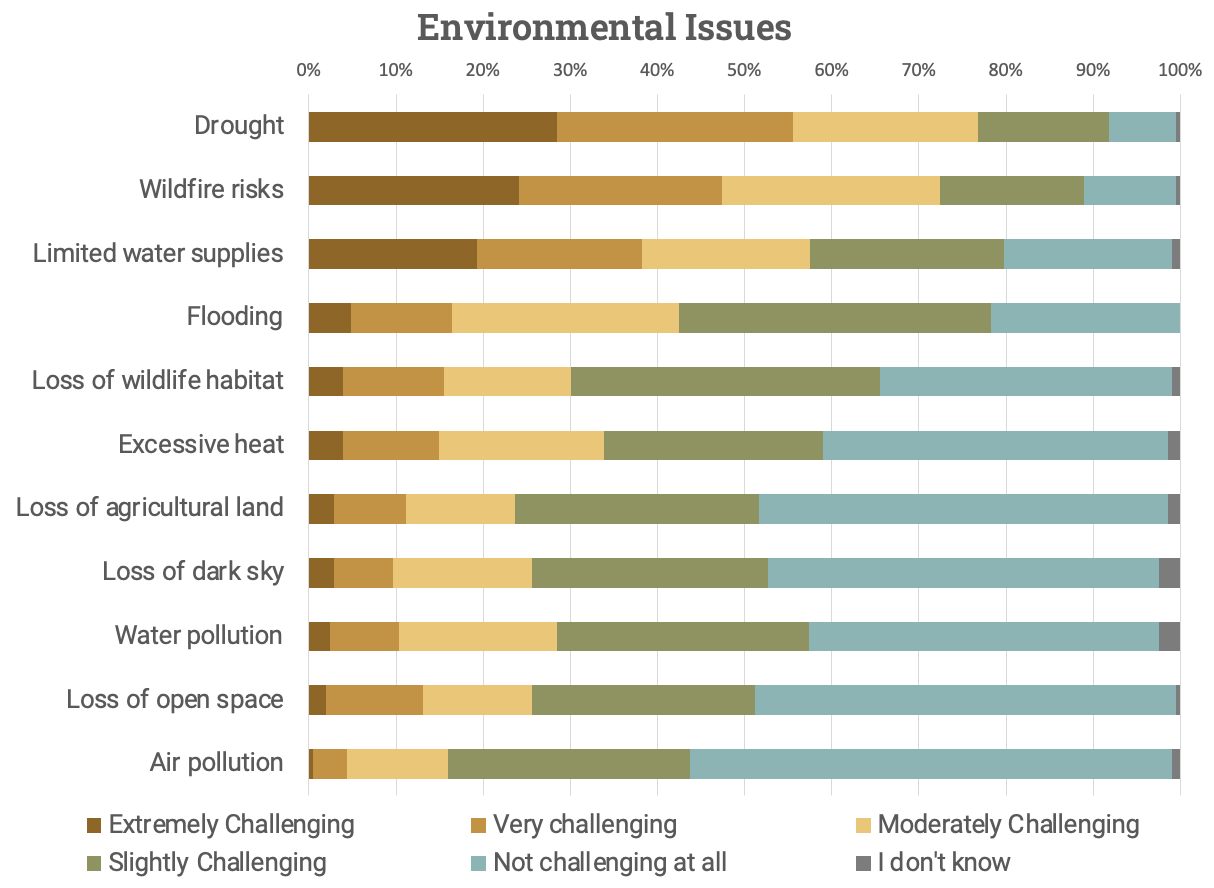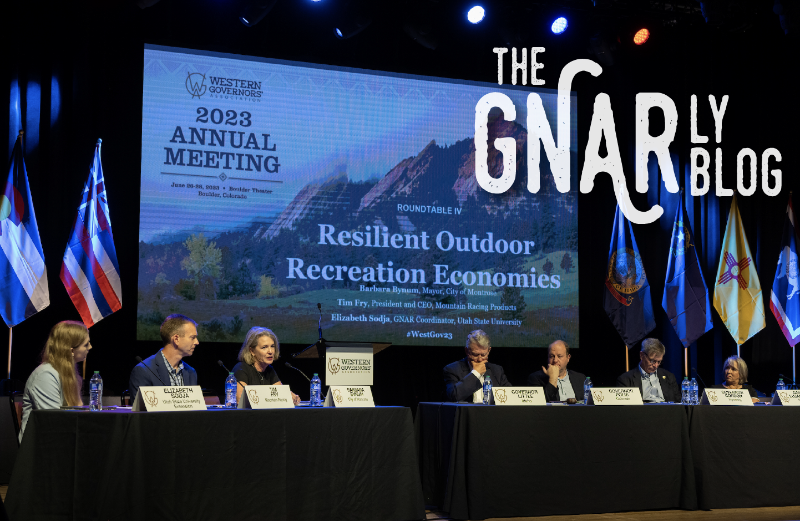
Panel at the 2023 Annual Western Governor's Association Meeting
What makes a Resilient Outdoor Recreation Economy? GNAR Community Survey Highlights from WGA
By: Elizabeth Sodja, GNAR Initiative Coordinator
Highlights from the 2022 NITC Community Survey and discussion about resilient outdoor recreation economies from the 2023 Annual Western Governors’ Association Meeting
What makes a resilient outdoor recreation economy? That was the subject of a panel during the 2023 Western Governor's Association annual meeting that the GNAR Initiative was invited to be part of. During it, we presented some key findings and insights from our recent 2022 GNAR Community Survey.
The panel, which was facilitated by Idaho's Governor Brad Little, also included Mayor Barbara Bynum of Montrose, CO, and Tim Fry, President/CEO from Mountain Racing Products in Grand Junction, CO. Together, we discussed the incredible opportunity to use outdoor recreation to boost local economies, along with the challenges faced by rural communities known for outdoor recreation. Some of the challenges we discussed included the volatility of the hospitality industry, affordable housing shortages, insufficient internet service, workforce retention difficulties, and governance issues. We also explored the pressure high visitor counts put on emergency services and natural resources, the fact that visitors often do not generate enough local revenue to cover these impacts, and the ways communities can address these challenges to encourage sustainable tourism.
So, what did GNAR bring to the conversation? Below are some highlights from the 2022 GNAR Community Survey that were shared to help frame the discussion at WGA. You can learn more about the Community Survey on the project webpage and find more results and findings from the survey in the project report.
Development Issues in GNAR Communities
As part of the survey, public officials in GNAR communities were asked to rate how challenging development issues have become in their individual locales. More than half of 200+ survey respondents said the following development issues are moderately to extremely challenging for their communities:
- Provision and maintenance of basic infrastructure
- Lack of developable land
- Community conflicts over density
- Change in community character
- Insufficient internet service
One of the best ways state governments can help support and bolster resilient outdoor recreation economies is through making it easier for GNAR communities to access capitol and resources to help them maintain and update their infrastructure, especially if visitation increases are putting additional stressors on it.
Governance Issues in GNAR Communities
As part of the survey, public officials in GNAR communities were asked to rate how challenging different governance issues have become in their locales. More than half of 200+ respondents identified the following issues as moderately to extremely problematic for their communities:
- Lack of local government resources and revenue
- Difficulties associated with local government employee recruitment and retention
- Insufficient local government staff/capacity
- Community anti-growth sentiment
One key way state governments can support and bolster resilient outdoor recreation economies is to help give GNAR communities access to as many tools as possible to address housing challenges. This includes helping them access affordable housing funds, ensuring maximum local flexibility in zoning and ordinances to help incentivize and protect locally affordable housing options, and enabling them to manage short-term rentals in ways that both mitigate the market's impact on local housing inventories, and also allowing them to tap into the desire for this form of accomodation as a funding resource to help address the challenges it creates.
Economic Issues in GNAR Communities
Communities were asked to rate how challenging six different economic issues have become in their individual locales. Four issues crossed the 50% threshold at "moderately challenging" or above, including:
- Housing Affordability
- Imbalance in average local wages relative to cost of living
- Difficulties associated with local workforce recruitment/retention
- Lack of economic diversification
As previously stated, one of the best ways state governments can help support and bolster "resilient" outdoor recreation economies is to is to give GNAR communities access to as many tools as possible to address their housing challenges.
Environmental Issues in GNAR Communities
Communities were asked to rate how challenging eleven different environmental issues have become in their individual locales. Three issues crossed the 50% threshold at "moderately challenging" or above, including:
- Drought
- Wildfire risks
- Limited water supplies
One key way state governments can help support and bolster resilient outdoor recreation economies is through helping GNAR communities access capitol and resources to help prepare for and mitigate the effects of climate change, whether through infrastructure investment to help increase water efficiency or supporting wildfire preparedness.
Conclusion
During the panel, several community-driven solutions from Colorado were also highlighted, such as the recent HB11-1117, which expanded what Colorado's local governments can put transient room tax funds toward – funds can now go toward affordable housing or local childcare resources, in addition to marketing for tourism. Chaffee County's recent private land camping ordinance, a potential win-win for both agricultural and recreation interests, was also mentioned. Finally, several Colorado communities have enacted short-term rental specific excise taxes to harness the market desire for this form of accommodation and turn it into additional resources to offset some of its negative impacts.
If you’re curious to learn more about the GNAR Initiative’s 2022 Community Survey, I encourage you to check out the project webpage and find more results and findings from the survey in the project report.
If you have any questions or comments you'd like to share, please reach out to the GNAR Initaitive Coordinator, Elizabeth Sodja, at liz.sodja@usu.edu.


